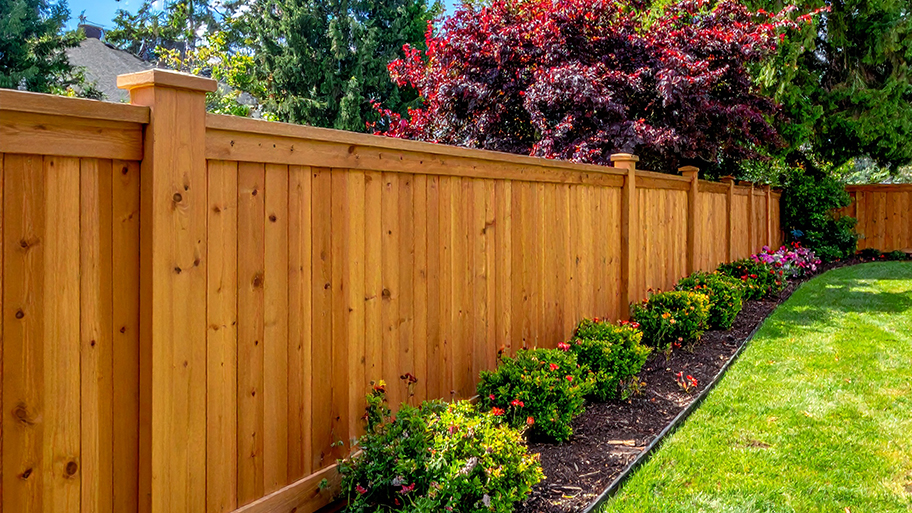
Pressure washing your fence can restore its appearance and keep your home looking great. Learn how much it costs based on factors like square footage and material.
Take the pressure off of finding the best psi for the job


The best psi for a pressure washer for home use is 2,000–3,000.
Cleaning driveways or other durable surfaces may require up to 4,000 psi.
GPM also plays a part, with ideal GPM ranging from 1.5 to 2.5 for residential use.
Medium-duty pressure washers cost $150–$500.
A lot of us have been there: You pull into the driveway and can’t help but notice the stains on the concrete and the grime building up on the siding of your house. Before you rent or buy a pressure washer, consider the material you’ll be cleaning and what a good psi for a pressure washer is. The best psi for residential use is between 2,000 and 3,000 psi, but other factors can come into play. Here’s what to know about finding the right psi for your pressure washing needs.
No matter whether you use a gas or an electric pressure washer, you need to choose the right psi rating for your machine. The acronym “psi” stands for pounds per square inch, and it’s a measurement of the force of the water coming out of the pressure washer wand. The higher the psi, the more pressure you’re dealing with.
Higher pressure is great for blasting away tough stains on concrete hardscaping, but it could damage your wood deck or vinyl siding. However, if the pressure is too low for the job at hand, you’ll just be rinsing the area rather than actually cleaning it.
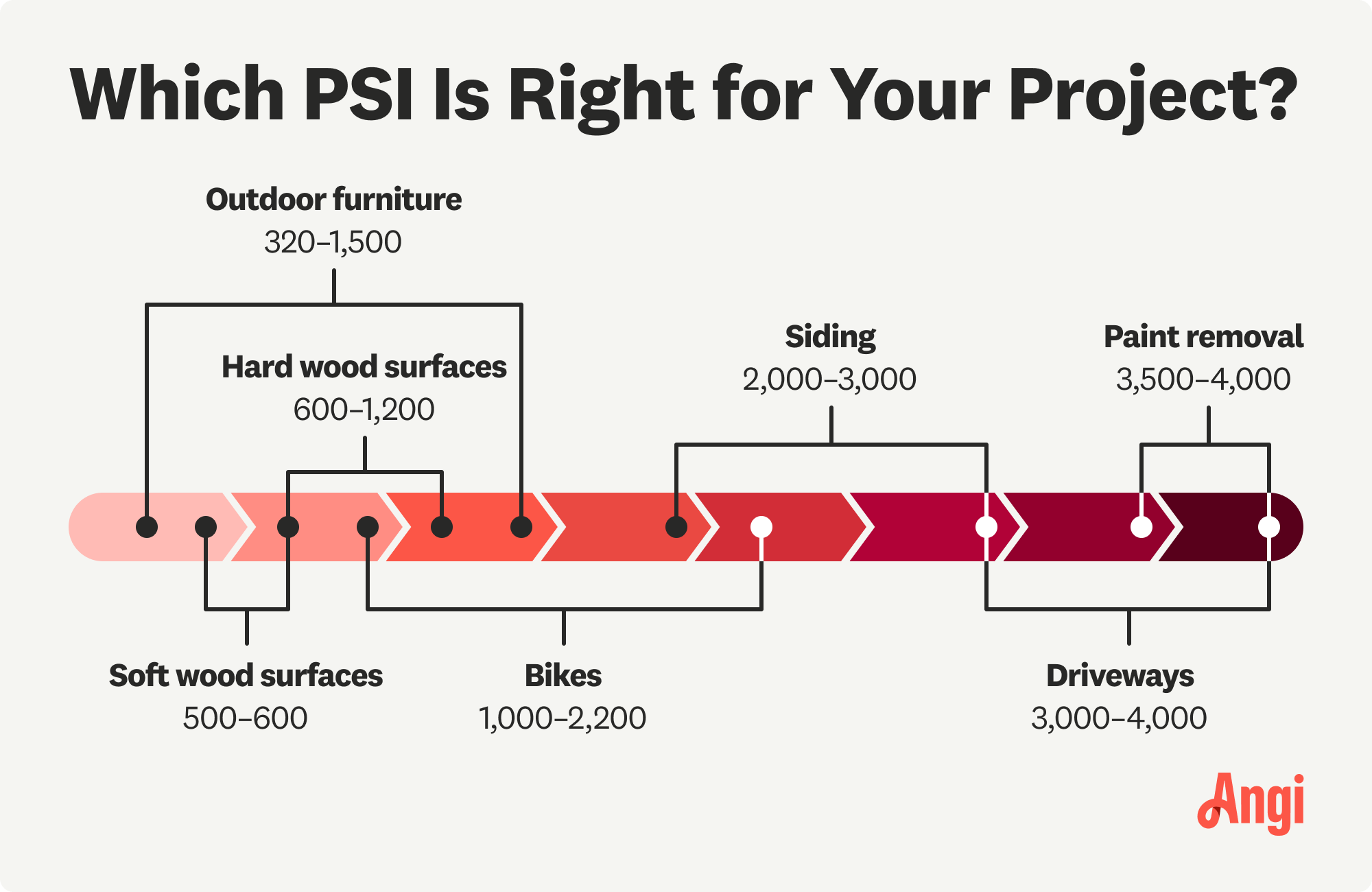
One essential component of knowing how to use a pressure washer is knowing what a good psi is for a pressure washer. A pressure washer with a psi between 2,000 and 3,000 will work for most home jobs. If you need to deep clean an incredibly durable surface, such as a concrete patio or a thick metal surface, you can find pressure washers with a psi of up to 4,000 for residential use.
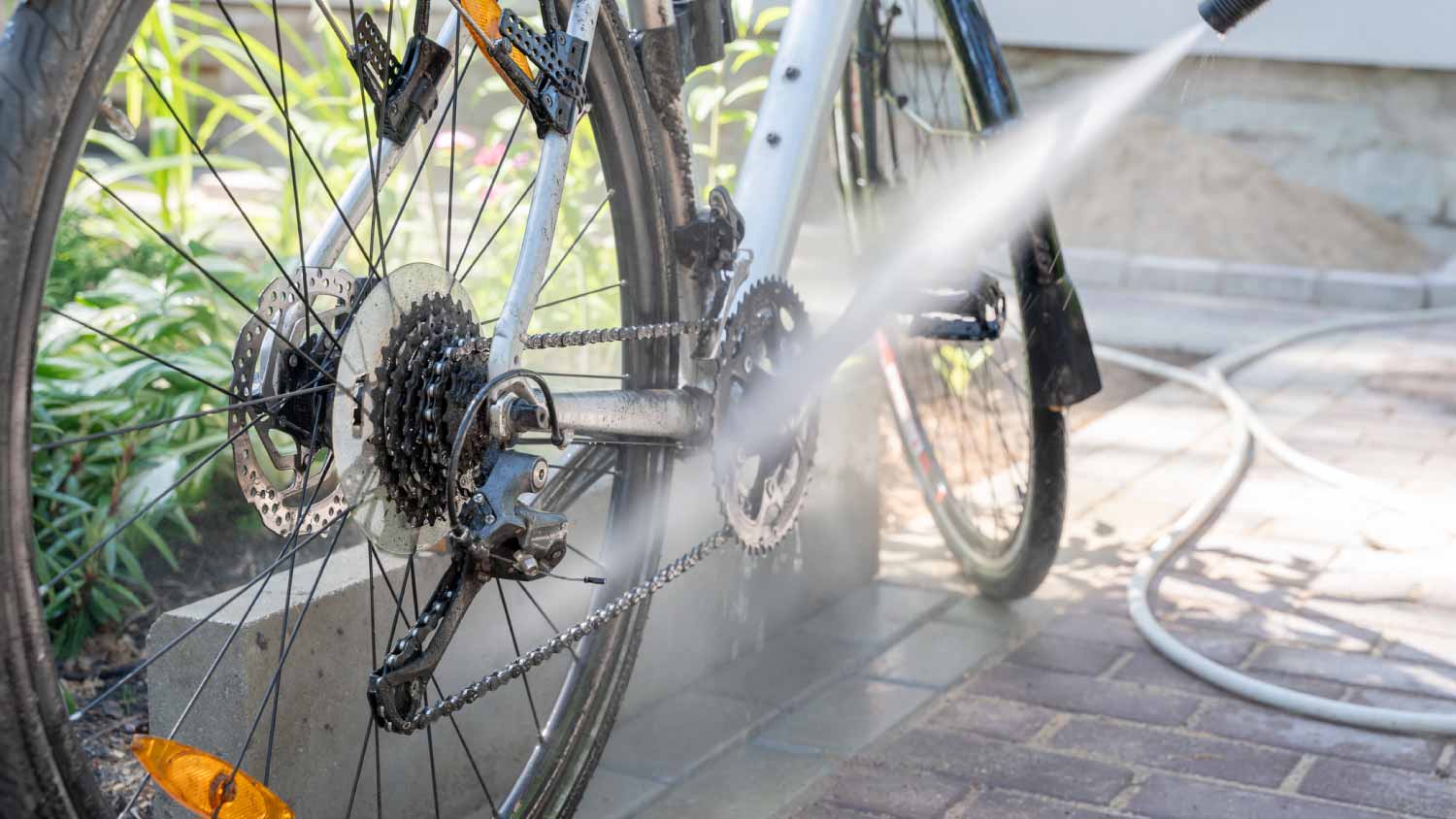
Whether you’re pressure washing your siding or giving a wood deck a deep clean, there are different psi recommendations for the project at hand. For instance, you may need 4,000 psi to clean oil stains off of your driveway, but that level of pressure will strip and warp the wood on your deck. Here are some recommendations for psi based on what you’re trying to clean.
| Project | Best Pressure Washer PSI |
|---|---|
| Bikes | 1,000–2,200 |
| Siding | 2,000–3,000 |
| Wood fence or deck | 2,000–3,000 |
| Concrete hardscaping | 3,000–4,000 |
| Asphalt driveway | 3,000–4,000 |
When buying a pressure washer, you shouldn’t only pay attention to the psi. Consider the flow rate in GPM, or gallons per minute, too. An ideal GPM for a pressure washer is 1.5 for light-duty projects and 2.5 for heavy-duty cleaning on more durable surfaces.
"If you don't think your pressure washer is strong enough, consider hiring a pro. Professional machines provide stronger pressure without using a smaller tip, allowing them to maintain surfaces without damaging them."
— Dylan Harris, Director of Operations at Window Hero, Charlotte, North Carolina
Rather than deciding to buy a pressure washer by psi versus GPM, you should consider both of these metrics as well as the ECUs, or effective cleaning units. ECU multiplies both the psi and GPM to determine the total power of a pressure washer. When considering both psi and GPM, look for light-duty pressure washers with 1,950 to 4,400 ECU or medium-duty models with up to 8,000 ECU. Anything higher than that is best reserved for commercial use.
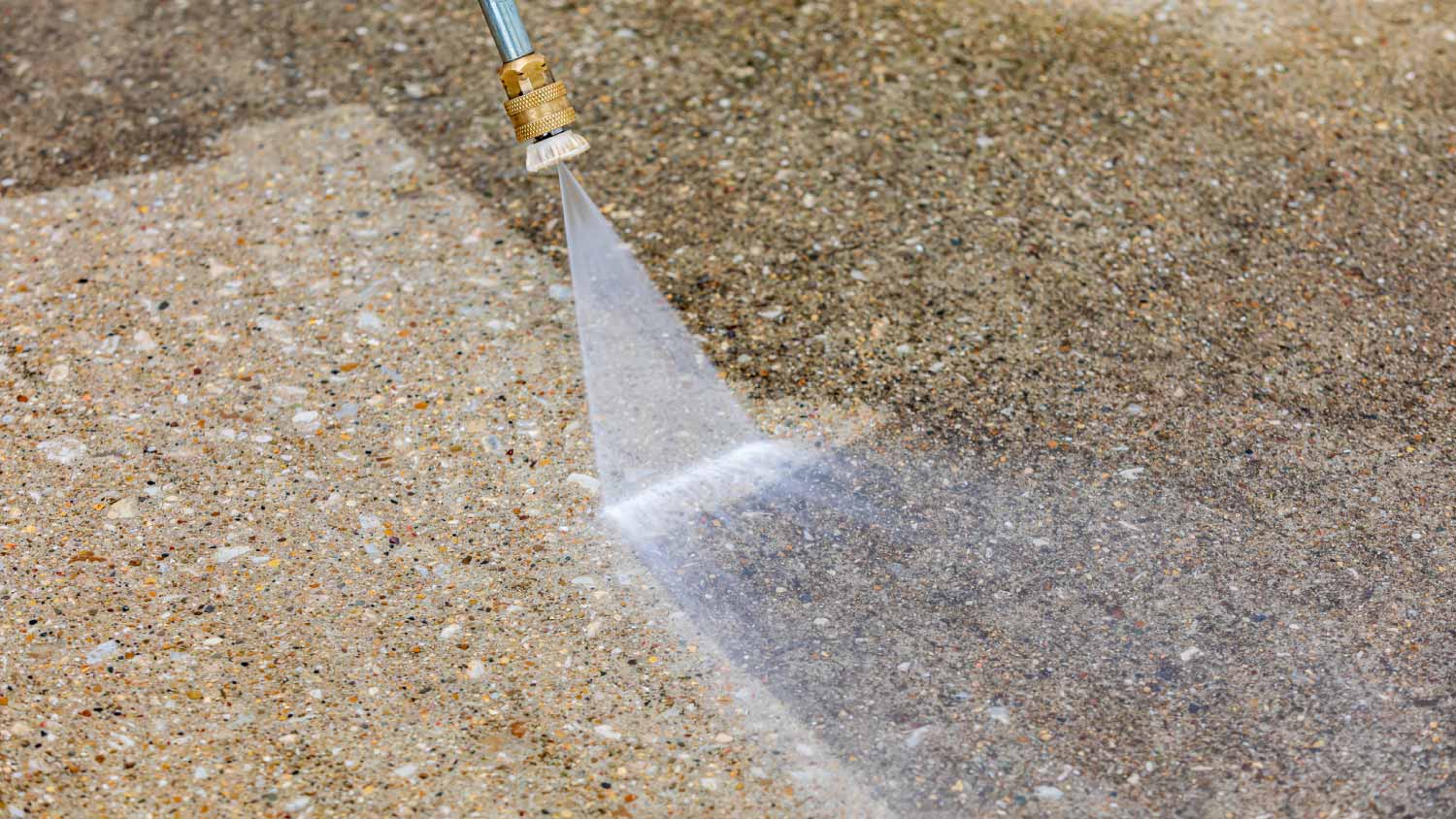
If you want to pressure wash different parts of your property, one helpful pressure washing tip is to use nozzles to adjust the psi. That way, you don’t need to rent multiple pressure washers to clean different surfaces.
Larger nozzles will reduce pressure, while smaller nozzles will increase pressure. Just be cautious not to choose too small of a nozzle because some nozzles can put too much pressure on the machine. If you’re not sure which nozzles you should use, get advice from a pressure washing pro near you to avoid damaging your pressure washer.
Depending on what you’re trying to clean, consider the following nozzles to achieve a specific psi. You’ll need to consider both GPM and psi to find the right nozzle.
| GPM | PSI | Nozzle Size |
|---|---|---|
| 2 | 1,200–1,500 | 3.5 |
| 2 | 1,800–2,200 | 3 |
| 2 | 2,400–3,000 | 2.5 |
| 2 | 3,200–4,000 | 4 |
| 2.5 | 1,200–1,400 | 4.5 |
| 2.5 | 1,500–1,800 | 4 |
| 2.5 | 1,800–2,300 | 3.5 |
| 2.5 | 2,400–3,200 | 3 |
| 2.5 | 3,500–4,000 | 2.5 |
From average costs to expert advice, get all the answers you need to get your job done.

Pressure washing your fence can restore its appearance and keep your home looking great. Learn how much it costs based on factors like square footage and material.

Pressure washers can help you keep your home looking great. Use this guide to learn how much it costs to rent a pressure washer based on factors like type and time.
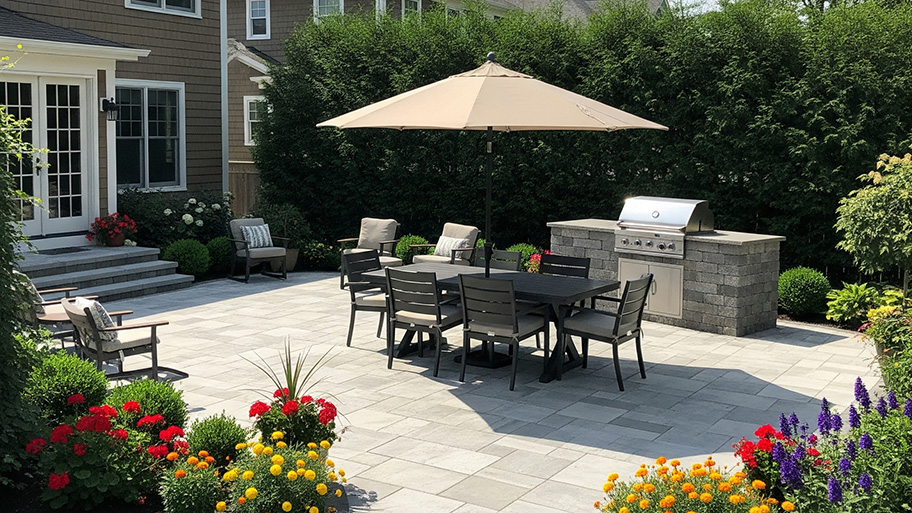
The cost to pressure wash a patio depends on the size of the surface and the type of patio you have, as well as whether you DIY or hire a pressure washing pro.

Does your pressure washer lack pressure? Or will it not start at all? Know who repairs power washers and who to call to get yours fixed.

Power and pressure washing have different uses, but they’re both good for cleaning outdoor areas. Here’s when to use a power washer versus a pressure washer.

Jet washing, or pressure washing, uses an intense stream of cold or room temperature water to clean surfaces.